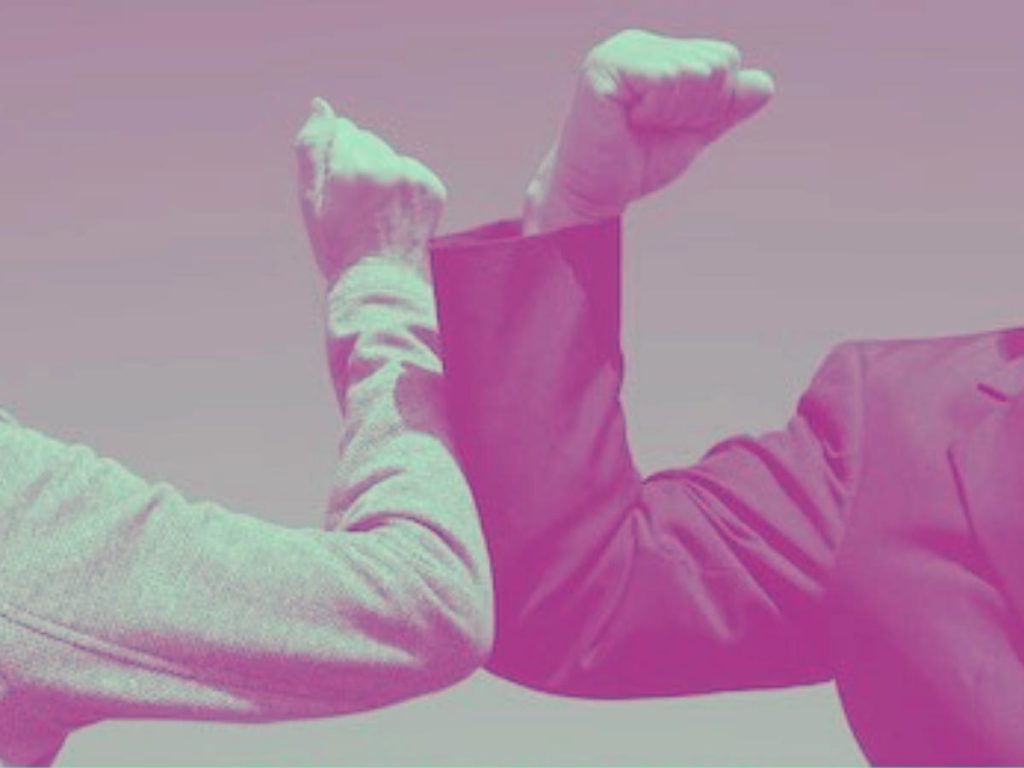Adaptation to New Norms in the Workplace?
“There are no hopeless situations; there are only men who have grown hopeless about them.”
Clare Boothe Luce, American author, diplomat, member of Congress (1903-1987)
What a month! With the ramping up of the Coronavirus and all the apprehension, restrictions, recommendations, reduction of personal interactions, and personal habit changes, it is no wonder people are in various stages of concern. As I sit at home (i.e., social distancing) writing this THINK piece for GFB Monthly, I am filled with both personal and business-related questions…and very few answers (as those will require time).
I wonder about my personal behaviors, of which I have become very fond over the 73 years of my life (I am just beginning the second half of my life). I am a face-to-face talker and listener. I am an admitted hugger, not so much of trees, but of people. In fact, in some of my wishes for my three “children”, their spouses, and our grandchildren, I have often encouraged them to speak with emotion (heart and head), value eye contact, hug like you mean it, and spend more time listening than talking. People appreciate feeling valued, and one of the best ways to value a person is to listen well, without distraction. Give credence to their thoughts, positions, perspectives; it always pays dividends.
People were made to be social. Clans, families, friendships, groups of similar interests, clubs, bars, restaurants, etc. form under this need to adhere, cling, associate, rely on, and interact with those around us, even as different and unique as we all are – thankfully. A previous GFB Monthly interview (see “Old, New, Rusty, Charming, Intimate, …Rare”, CREATE category) heard Malachi Morris, founder and operator of the Taproot Coffee Company and its well-known and highly visited Coffee Busses, say he wanted his establishments to be places of dialogue, interaction and comfort in doing so. That speaks so well to our basic needs.

So, I do wonder if my proclivity to associate, join in, and care will at all be hampered by some of the unwanted things we may learn from this most recent “common enemy”. I wonder if I will, after this real scare is over and quickly forgotten in the congestion of our everyday life, be just a bit reluctant to shake hands, hug or talk engagingly for lengths of time. Personally, I don’t think the worst will occur. In fact, I firmly believe we will quickly, individually and corporately “reset” at a different level…even back to valuing “closeness”. We need it too much not to do so.
I also have questions about our work environments. I tried yesterday to get into a fast food restaurant only to be rebuffed by the sign on the door announcing the restaurant would serve only by delivery or via the drive-through window. When calling a business, I have to ask first, “Are you open for business?” “Is (the person I am trying to reach) working there today or at a remote place?”
“As an entrepreneur, you never stop learning.”
Daymond John
I rely more and more on emails and telephone calls to secure information or conduct interviews for the GFB Connect pieces I am asked to write. I don’t like that, being that face-to-face type that I am, but such are the adjustments I am making to my own work style. I have an office in the city, which I love for its comfort and for being conducive to writing and collaboration, but I now work more from home, trying to concentrate amid the demands of two dogs with small bladders, the siren call of the too-close refrigerator, and the lure of the couch or bed “just to take a short break”. But such is my work life, as least for now. Which is better? I don’t know. I honestly don’t. Maybe it is best that I view these adaptations as brief “variations” that create options rather than becoming the new norm of my work life.
Will we be encouraged to continue the electronic communication style that is so convenient, non-involved, brief, and often so impersonal over the face-to-face chat with a colleague? Will we find that having Skype, Go-to-Meeting, and conference calls far more convenient and non-intrusive than having to go to a conference room, wait for others, take notes and leave?
Numerous studies have spoken to the three forms by which we are “effective” in our personal communications. First, by the words we choose to use. Colorful words, big words, technical terms, personal language, well-spoken with clarity and meaning. Secondly, by how we say those words. Haltingly, with sincerity, interrupted by meaningless “word fillers” of “uh”, “er”, “you know”, “right”, etc. Words said loudly, softly, harshly, with intensity, and so forth.
“An investment in knowledge pays the best interest.”
Benjamin Franklin
Finally, how we “look” as we speak our well-chosen and well-crafted words. Said another way, “body language”.
Surprisingly, maybe not so, it is said that each form contributes to our effectiveness in different proportions:
- The words we choose (only 7%)
- The way we say those words (38%)
- The way we look as we speak those words (55%)
By using email, we miss out on 93% of the potentially effective facets of communication…
By using the phone, we still miss out on 45%…
Over the phone or via email it is so difficult to “read” the person, listen behind the words and between the lines. Those insights are obtained by being with the person.

Yet, think about it. What do our children learn in school? Words and their meanings, how to diagram sentences, spelling of words (not emojis or text speak), how to define words. Unless a student takes communication classes, participates in debate, or is given oral presentation practice, it is unlikely that much time is spent on how to “look effective” in our speech.
So, in the aftermath of this crisis, will our work environments value separation and remote offices, distance conferencing, more open or closed worked spaces, teams or individual work? I wonder if these same adaptations so prevalent even today will continue, or will we drift back to closeness, team interaction, and collective decision-making? Will we ever stop relying mostly on email? I seriously doubt it. The advantages, speed and ease are too seductive.
So, what are we left with that will ensure our adaptations in workplaces and personal behaviors make sense? What brings about change in workplaces and individual behaviors with more certainty, though at a slower pace, and with more permanence?
Education. Education. And again, Education.
All levels of formal education, whether it be job knowledge, skill development, learning how to work effectively (solo or in collaboration with others), re-education, self-learning or distance learning – are all enormously valuable as we move forward.
Simply said, Education is the catalyst, the promoter, the pacesetter unsurpassed by other vehicles for change and development of our economies.
For that reason, readers of GFB Connect articles (GFB Monthly and GFB NOW) will see a singular thread running through most of our articles about new, entrepreneurial and innovative companies – the learning process. Life lessons, training and development initiatives, and what people learn about themselves in the process of building a business.
“Learning and innovation go hand in hand. The arrogance of success is to think that what you did yesterday will be sufficient for tomorrow.”
William Pollard
So, many heartfelt thanks are due by all of us to our highly-coveted educational communities in the Catawba Valley: public and private schools, two- and four-year colleges (Catawba Valley Community College and Lenoir-Rhyne University), workforce initiatives (Furniture Academy, Workforce Solutions Center, etc.), and the efforts of local employers to continue the education of their employees in work skills and efficiency.
The time for collaboration and mutual support between education systems (two-year and four-year colleges, educational institutions and the employers) in the Catawba Valley has never been greater. As we adjust our lives, our work environments and our expectations of each, perhaps this viral crisis could be a “wake-up call” that nothing is permanent. Everything is subject to change.
Tony Jackson
Managing Director
GFB Connect, Inc.